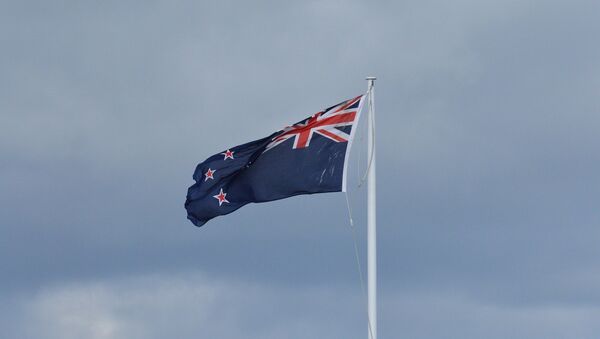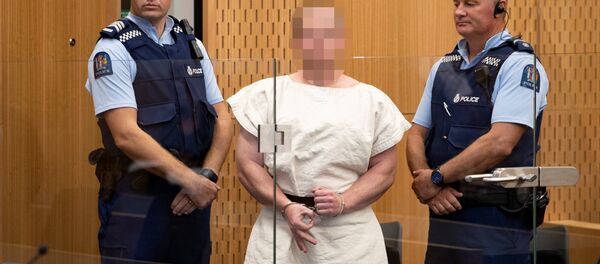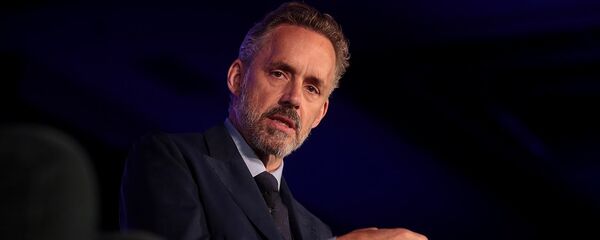Sputnik: The mosque shooter's manifesto has been banned In New Zealand which raised free speech debate. Mein Kampf, at the same time, is in free sale in NZ. According to Chief Censor David Shanks, this Manifesto crosses a line that Mein Kampf didn't. How to define this line? In your view, should any literature be banned at all?
Leighton Baker: We agree with the banning of the video of the terrorist actions, but not the banning of the manifesto. The issue with the banning of the manifesto is that it shuts down open debate on what caused the terrorist to act in this way and starts society down a dangerous path on what it can and cannot discuss.
Leighton Baker: Freedom of speech has always been very important in New Zealand and is seen as one of the motivations to join in the World wars. There does seem to be some attempts at restricting free speech in New Zealand at the moment by various individuals and institutions trying to ban speakers they disagree with. We had it last year with the former Governor of the reserve bank, Mr Don Brash, being banned from speaking at a university. The reason given was security concerns, however, this was proven to be false and it was just that one individual disagreed with Mr Brash so tried to stop him. Again some speakers from Canada were denied access from venues in New Zealand as some people disagreed with their viewpoint. These are significant deviations from the historical ability of people being allowed to express their views in New Zealand and are definitely worth rallying against.
Sputnik: In his manifesto, the NZ shooter said that the "left-wing within the US will seek to abolish the second amendment. The right-wing within the US will see this as an attack on their very freedom and liberty. This attempted abolishment of rights by the left will result in a dramatic polarization of the people". As you know NZ has already banned assault weapons. In your opinion, doesn't this move fulfil his wish?
Leighton Baker: I have not been able to view the manifesto so cannot comment on its content, however, his actions have driven a wedge into some discussions in New Zealand and caused some knee jerk reactions.
Sputnik: How well is the NZ government dealing with the aftermath of the terrorist attack?
Leighton Baker: The support from the New Zealand government for the victims and families of victims of the attack has been outstanding and has no doubt helped them as they have had to deal with a horrific situation. We welcome debate on gun reform but believe that it is important that the government follow due process in formatting laws so that we do not introduce poorly thought out laws that have unforeseen consequences.
Sputnik: Australian Senator Fraser Anning has linked the shooting with New Zealand's immigration policies. What, if any, are the major flaws in New Zealand's immigration system?
Leighton Baker: New Zealand's immigration system has a few flaws. We are struggling with a lack of housing in New Zealand, so fundamental logistics would say we need to limit immigration while we build enough houses to accommodate the people that are already here. We need to develop a long term immigration plan looking at the jobs that will still be viable in the future. If we allow people to migrate here for work that is becoming obsolete, then we are importing a burden for our future generations. We need to place a greater focus on people that migrate to New Zealand being able to integrate through a comprehensive understanding of the language and culture.
Sputnik: More than 150 governments signed UN Migration Pact in December. New Zealand voted in favour of this compact. In your opinion, will the signing of this pact benefit New Zealand? How will this pact affect national sovereignty?
Leighton Baker: We campaigned against the signing of this pact for a few reasons, firstly it seemed that the signing was happening without the approval of the New Zealand public and when the government was challenged on this they deferred, delayed and distracted, but still signed the deal which did not look like good democracy. Although the pact is meant to be non-binding, once you sign an agreement with that many other nations, it is only reasonable to expect that they will hold you to it, therefore making a legally non-binding pact morally binding. The pact advocates for open borders which does automatically reduce individual nations sovereignty. The European experience with open borders has been short-lived with many nations now enforcing strict immigration limits and this is a warning to other nations contemplating the open border policy.
READ MORE: New Zealand to Tighten Gun Law With New Amendment Bill — Parliament
Sputnik: In an article published on the Free Speech Coalition's website it was mentioned that this pact would damage New Zealanders' right to free speech and debate. How exactly does the pact affect freedom of speech in New Zealand?
Leighton Baker: Freedom of speech could be impacted by clause 17 which encourages members to withdraw funds and re-educate media that engages in hate speech without giving any clear definition of hate speech. This makes hate speech a subjective decision which means it is open to abuse. We already see people being labelled as "Haters" in New Zealand for offering a different view to the popular dogma. Disagreeing with someone is not hating them, yet this is the accusation which is being levelled, so yes this pact could negatively affect free speech.
The views expressed in this article are those of the speaker and do not necessarily reflect those of Sputnik.



